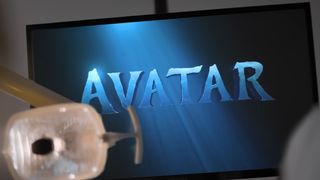Knowing how to minimise your design business’ tax bill whilst staying on the right side of the law can be tricky. “Most of the answers to questions about tax tend to go, ‘It depends’,” admits Robert Rawle, director of media and creative industries at Bristol accountancy firm Bishop Fleming, and to avoid the taxman coming after you with his finest-toothed combs, the safest route is to consultant an accountant. Nevertheless, there are numerous legitimate ways to save.
Home-based freelancers will already be used to recording expenses like broadband, utilities and Computer Arts subscriptions to set against gross earnings when the time to file your tax return arrives. According to Rawle, however, the key is to remember even the smallest receipts. Whilst you can’t sneak your weekly grocery shop through the books, neither should you lose track of business expenses paid for with cash or on your personal credit card. “If you record these on a monthly basis you’ll probably find a lot more that you can claim,” Rawle says.
UK-based small studios and for individuals who earn enough to pay higher-rate income tax, incorporation – becoming a limited company – opens up other potential savings. “Incorporation is also worth considering for the protections that it offers, especially if you’re borrowing money and want to separate this from your personal finances,” Rawle advises. Perks of being You, Ltd include claiming mileage for business travel, plus many expenses where an employee might otherwise be penalised for receiving benefits in kind, such as client entertaining, childcare vouchers, mobiles, computers and iPads to use away from the office. Similar allowances may apply in other countries.
Freelancers and studios alike who are considering splashing out on new equipment should take advantage of the Annual Investment Allowance (Business Depreciation Credit in the US) on capital costs. As physical assets like computer equipment are treated differently for tax purposes from everyday expenses, this provides a way to offset such wallet-draining purchases against your income or corporation tax bill.
Finally, UK animation studios have a boost on the horizon in the form of a new targeted tax credit, which was announced in the chancellor’s autumn statement. The details are still being firmed up, but the credit is likely to apply to British animation productions and will take the form of a generous allowance to set against corporation tax for a government-approved boost to your profits.
Find 20 top examples of letterpress business cards at Creative Bloq.




